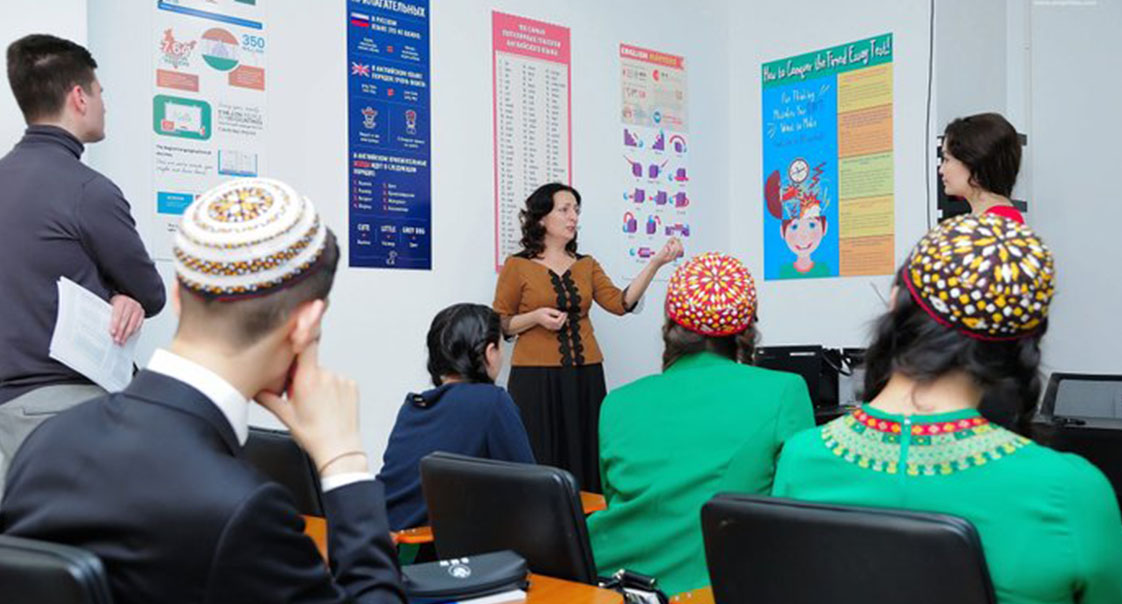
Language material: basic general language vocabulary (1-1.5 thousand units), idioms and phraseological units, typical syntactic constructions and speech patterns.
Linguistic and cultural material: Information about national traditions, rules of non-speech behavior, speech etiquette in standard situations, samples of adapted literary texts, a cycle of songs.
The entry level program is designed for 72 teaching hours.
Successful completion of the course provides an opportunity to meet the basic communication needs of everyday life and the opportunity to pass an exam for a certificate.
The educational course of the center "Dalchin" in the Russian language consists of three levels:
elementary level.
The purpose of the course is to form the foundations of Russian pronunciation and Russian dialogical speech in everyday situations of everyday life, adaptation to the Russian language environment.
The program includes the following aspects: phonetics, grammar, conversational practice. The scope and content of the course may vary depending on the specific level of language competence and professional interests of the students.
Phonetics
Tasks: correct tuning of the speech apparatus, mastering the system of articulation patterns, teaching intonation in accordance with the communicative goal (question, message, assessment).
Contents: the basics of Russian pronunciation
Features of the Russian articulatory base and phonological system: the specifics of the articulation of consonants and vowel formation zones, the main oppositions of sounds (deafness / sonority, hardness / softness, etc.).
The specifics of the structure of the Russian word: quantitative and qualitative reduction of vowels, the nature and place of Russian stress.
The system of Russian intonation and the intonation-semantic structure of Russian dialogue.
Grammar
Tasks: automation of grammatical skills in the most frequent situations of everyday communication.
Content: basic grammatical means of speech communication.
The gender category of a noun when expressing the subject of an action.
Prepositional-case system of nouns for expressing various meanings: location, direction, time, etc.
Aspective system of a verb for expressing time, result and process of action.
verbs of motion.
Speaking practice
Tasks: Ensuring the correct and quick response in the main educational and life situations; assimilation of sets of communication stereotypes in order to express such communication needs as to inform, learn, agree, discuss, suggest, induce, etc.
Content: cultural and speech adaptation
The course, organized on the basis of 7-10 topics, reflecting the spheres of everyday, educational, social and cultural communication.
Suggested topics:
Morning 09:00 – 11:20
Afternoon 15:30 - 17:50
Evening 18:30 – 20:50
Russian: Beginner: students will be able to: